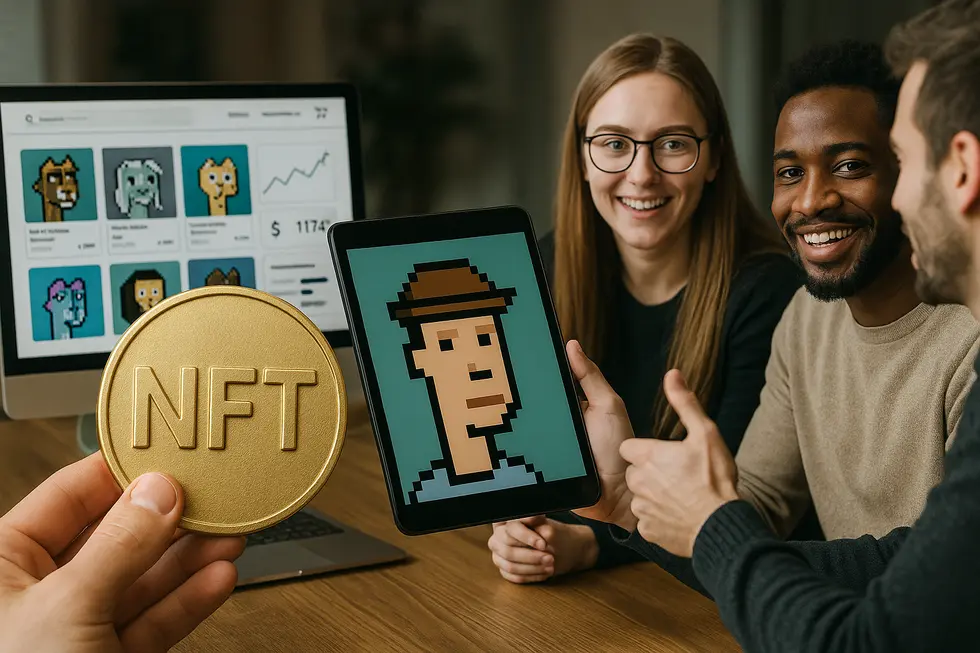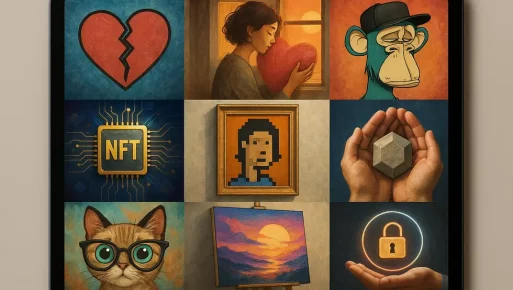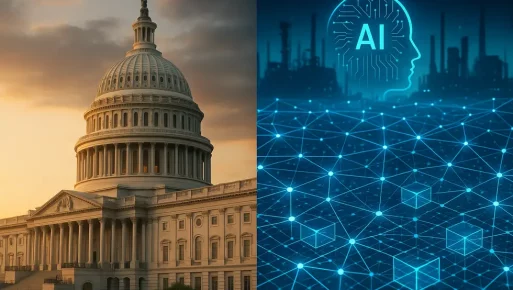Non-Fungible Tokens (NFTs) have emerged as a powerful force redefining digital society. They have redefined digital ownership and authenticity, enabling new economic models and sparking cultural shifts. This article delves into how NFTs impact digital society, exploring dynamics from ownership to market changes, cultural impacts, economic innovation, and the challenges they face. Each chapter offers a nuanced understanding of NFTs’ multifaceted influence, catering to digital culture enthusiasts, creators, academics, and policymakers.
Transforming Ownership: NFTs’ Revolution in Digital Society

The digital ownership revolution fueled by Non-Fungible Tokens (NFTs) is radically reshaping how we perceive ownership and authenticity in digital society. Acting as unique, blockchain-based certificates, NFTs provide verifiable ownership for digital creations, from art and music to videos and collectibles, tackling the age-old challenge of digital copying. Artists can monetize directly and even secure royalties via smart contracts, showcasing a new economic paradigm. NFTs disrupt traditional models by enabling direct transactions between creators and consumers, removing intermediaries in various industries. This technology extends beyond art, representing virtual goods in metaverse environments and even tokenizing physical assets, broadening their impact on digital identity. The surge of NFTs fosters debate on digital rights and the environmental impact of blockchain, spotlighting the controversial nature of digital scarcity. As society edges toward a tokenized economy, NFTs redefine not only ownership but also social interaction and value, paving the way for innovative market models Learn more about NFTs and digital ownership.
NFT Market Dynamics: From Speculation to Functional Integration
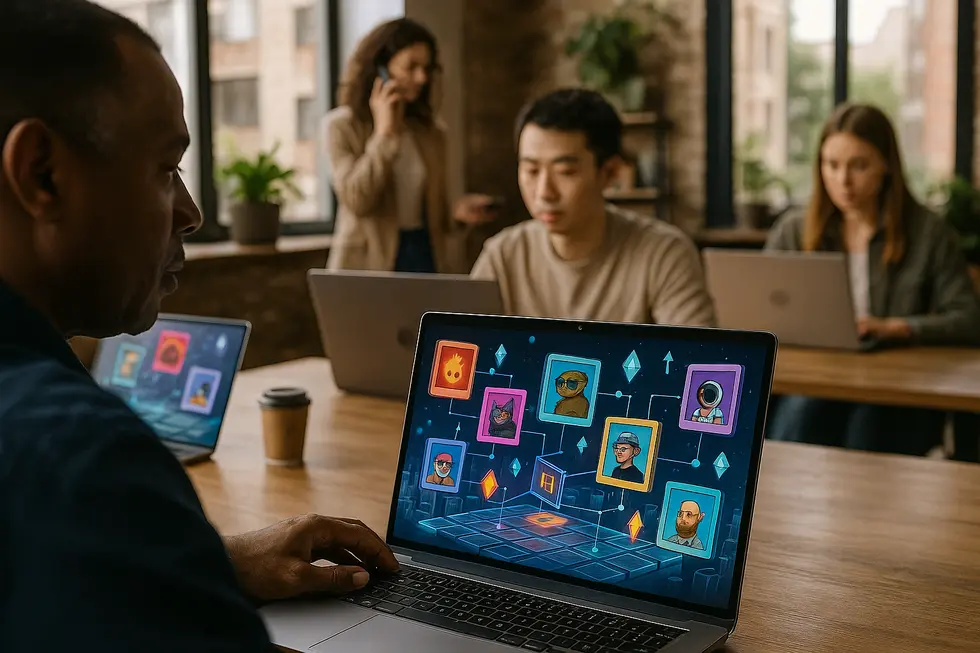
The NFT market of 2025 reflects a transformative shift from speculative frenzy to a robust, utility-driven framework. This evolution is prominently shaping digital society by redefining notions of value and ownership across various sectors. As NFTs mature, their utility extends beyond art and collectibles into realms like digital identity, security frameworks, and event access, thereby attracting more sustainable interest from investors focused on long-term value creation.
The projected growth of NFTs is staggering, with the market valued between $37.6 to $48.7 billion in 2025, expected to escalate to as much as $820 billion by 2035. This phenomenal growth is attributed to expanding use cases, enhanced blockchain technology, and clearer regulatory landscapes. Such advancements support the fundamental infrastructure of Web3, enabling a decentralized and user-empowered digital realm.
Innovative integrations are visibly expanding, with NFTs bridging the digital and physical ecosystems by tokenizing real-world assets like real estate and luxury goods. This paves the way for new business models, reflecting deeper behavioral shifts in commerce and society. Read more on how NFTs are shaping new opportunities for art and commerce.
NFTs: Navigating New Cultural Landscapes and Community Dynamics
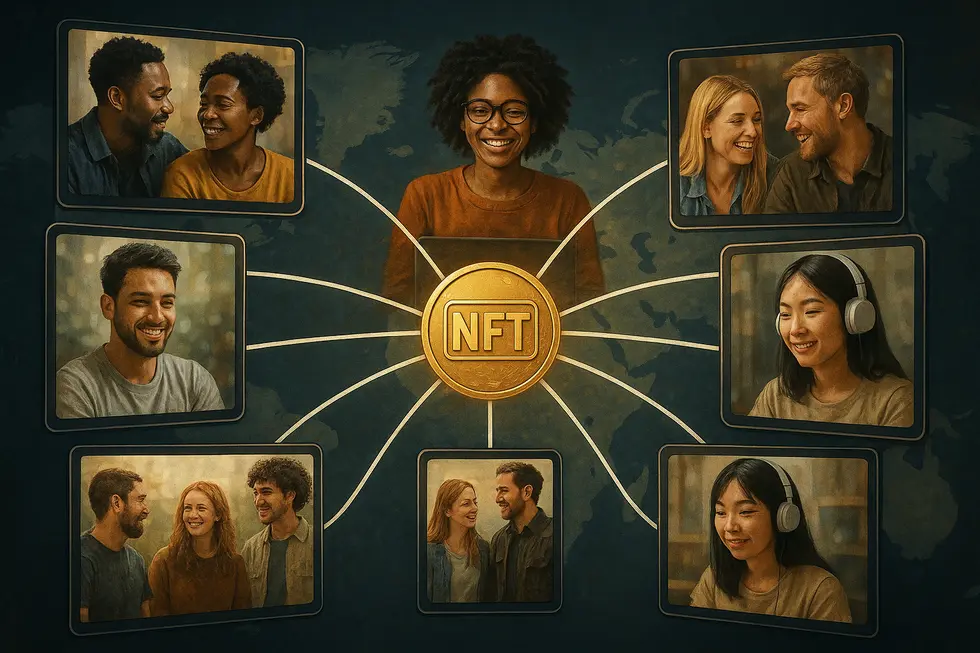
NFTs are reshaping the landscape of digital society, particularly in cultural and social contexts. By providing verifiable authenticity and uniqueness for both digital and real-world assets, NFTs encourage a profound transformation in how art and collectibles are perceived and valued. Artists and collectors now navigate new ecosystems where digital creations gain legitimacy, moving beyond mere speculation.
In social contexts, NFTs drive community innovation by powering decentralized governance models through Decentralized Autonomous Organizations (DAOs). These structures democratize decision-making, foster transparency, and evoke a sense of communal ownership, challenging entrenched hierarchies. NFTs also invigorate social activism, seen in initiatives like the George Floyd NFTs, where digital art intersects with social causes, mobilizing communities around common values.
Beyond governance and activism, NFTs serve as status symbols, defining social identities within digital communities. Ownership of exclusive tokens subtly influences interpersonal dynamics and engenders new community bonds. Collectively, these aspects showcase NFTs as key catalysts in redefining community engagement and cultural identities in an evolving digital age.
For insights into how NFTs support community engagement, explore this resource.
NFTs: Fueling a Digital Economic Revolution
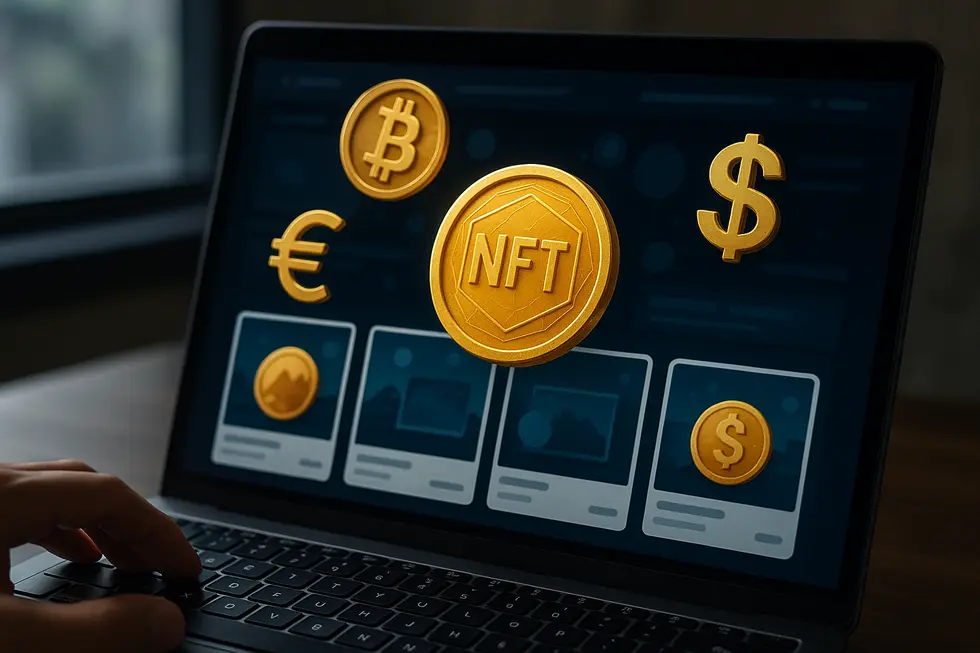
Non-fungible tokens (NFTs) are at the heart of a sweeping economic transformation, driving innovation across digital landscapes. By allowing verifiable ownership of digital assets, NFTs dismantle the age-old internet issue of ubiquitous content copying. This movement has expanded beyond art into gaming, finance, real estate, and brand engagement, creating a digital economy with real-world implications.
The evolutionary journey from speculation to utility marks a pivotal shift. Initial NFT hype centered around digital art has given way to applications offering genuine value, like access to exclusive events and interoperability for in-game assets. For instance, Cambria Islands NFTs exemplify this utility by integrating governance rights and decentralized finance. Such developments forecast a future where NFTs underpin economic frameworks, fostering a shift towards assets representing real-world property.
Brands, too, harness NFTs to forge stronger community bonds. They use NFTs to offer exclusive digital merchandise and experiences, fueling both engagement and revenue. This synergy between NFTs and brand strategies cultivates deeper consumer loyalty, blending digital interactions subtlety into everyday life.
Navigating NFT Adoption: Challenges and Their Societal Impact
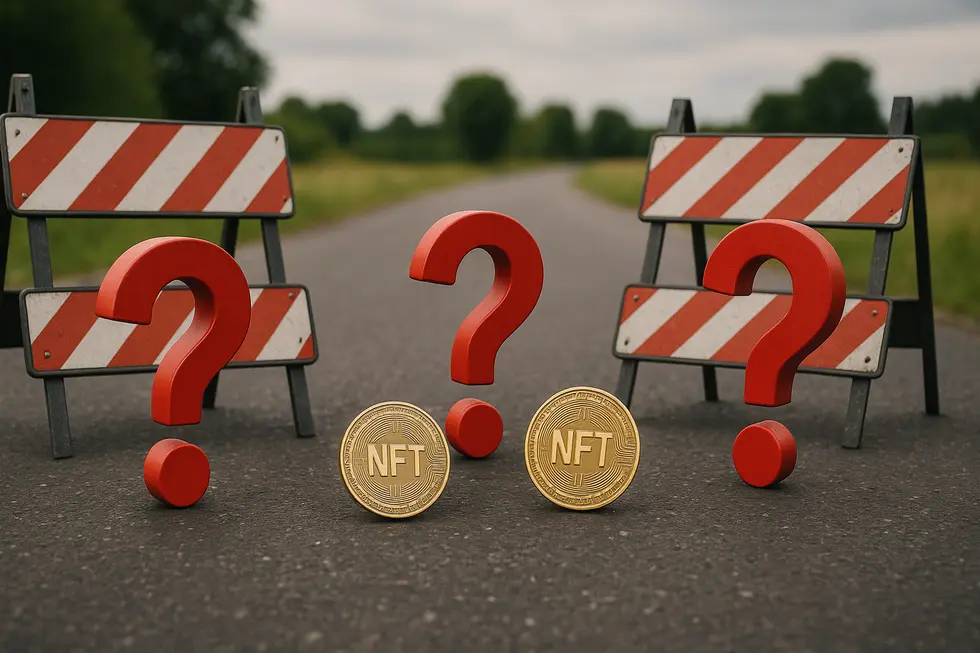
The adoption of NFTs is shadowed by a landscape beset with regulatory ambiguity, market saturation, and environmental concerns. Regulatory uncertainties, especially in areas like the European Union, present significant challenges. Many NFT projects grapple with the complexities of the Markets in Crypto-Assets (MiCA) regulation, which can drastically increase compliance costs and delay launches due to potential reclassification as securities [1]. Market oversaturation with low-quality NFTs further erodes investor trust, as the speculative bubble deflates, leaving many collections without value. This has cooled interest and left early adopters with assets that no longer hold their initial worth. Additionally, the environmental impact, particularly on energy-intensive blockchains, adds to the skepticism around NFTs’ sustainability, despite shifts towards eco-friendly alternatives [2]. Security vulnerabilities, marked by irreversible on-chain transactions and a lack of robust consumer protections, exacerbate trust issues. For NFTs to truly transform digital society, these challenges must be addressed, overcoming the erosion of trust and unlocking their potential beyond mere speculation. Sustainable practices and improved transparency could eventually foster a more resilient ecosystem. For further understanding, explore NFT Marketplace Dynamics.
NFTs: Charting a Path to Real-World Utility
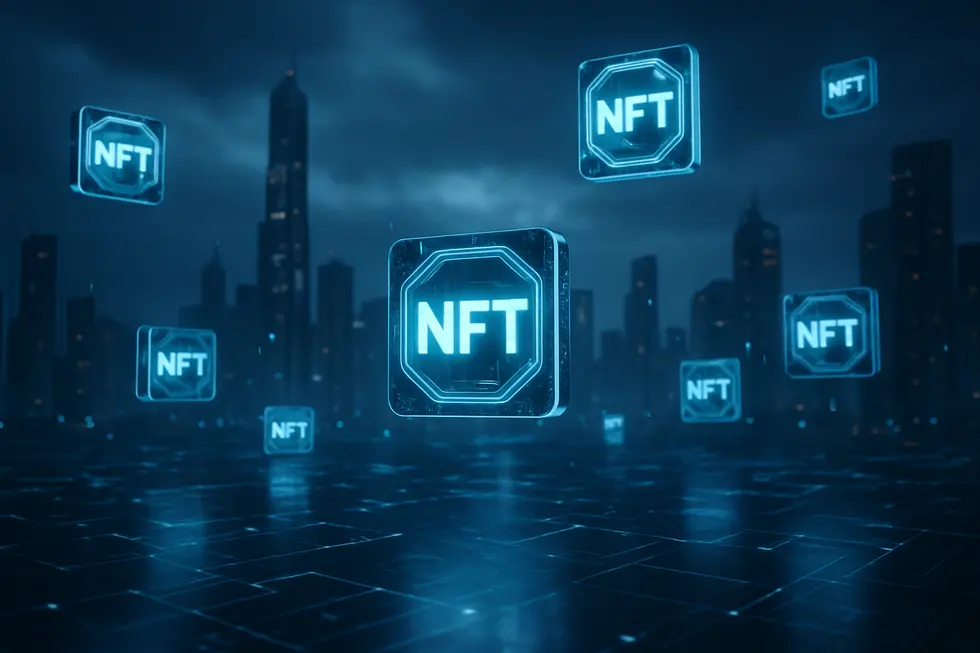
NFTs are poised to evolve from speculative assets to essential digital tools by 2030. As they expand beyond art and collectibles into realms like digital identities and gaming assets, they embed themselves deeper into our daily digital interactions. By 2025, the global NFT market is expected to swell to $37–49 billion, a precursor to its estimated $700 billion value by the early 2030s. This growth is fueled by the tokenization of real-world assets, making traditional markets more accessible and liquid.
Integrating AI with NFTs, intelligent NFTs (iNFTs) can redefine ownership and creator control. The fusion of these technologies holds promise for future AI marketplaces. As the market matures, regulatory oversight ensures stability, reducing volatility and fostering legitimacy. Blockchain advancements will enhance scalability and interoperability, further embedding NFTs in the digital ecosystem.
Culturally, NFTs democratize access to art and new economic opportunities. They promote the creation of novel financial instruments and reshape industries, signaling their foundational role in digital society. Discover how NFTs intertwine with brand loyalty in the article here.
Final thoughts
NFTs are increasingly crucial in shaping digital society by influencing ownership, market dynamics, cultural interactions, and economic practices. As they evolve, NFTs are likely to address current challenges and extend their impact, fostering a more decentralized and user-empowered ecosystem.
About us
Monbase Global is a strategic partner of OpenLive Group, focused on expanding the reach and utility of blockchain and digital asset applications across international markets. As a core collaborator in the Monbase NFT ecosystem, Monbase Global plays a vital role in driving cross-border partnerships, investment strategies, and user adoption beyond Vietnam. With a vision to build a decentralized digital economy rooted in trust and innovation, Monbase Global supports the international growth of NFTs, digital collectibles, and the use of the MBC token across various platforms. The partnership between Monbase Global and OpenLive Group brings together local insight and global ambition—creating real-world value for creators, collectors, and businesses alike.
🌐 Join the Monbase NFT community and stay ahead of the Web3 curve.
💬 Follow us on Telegram, Twitter, or Discord for drops and updates!
Facebook | X (formerly Twitter) | Telegram announcement | Telegram community


